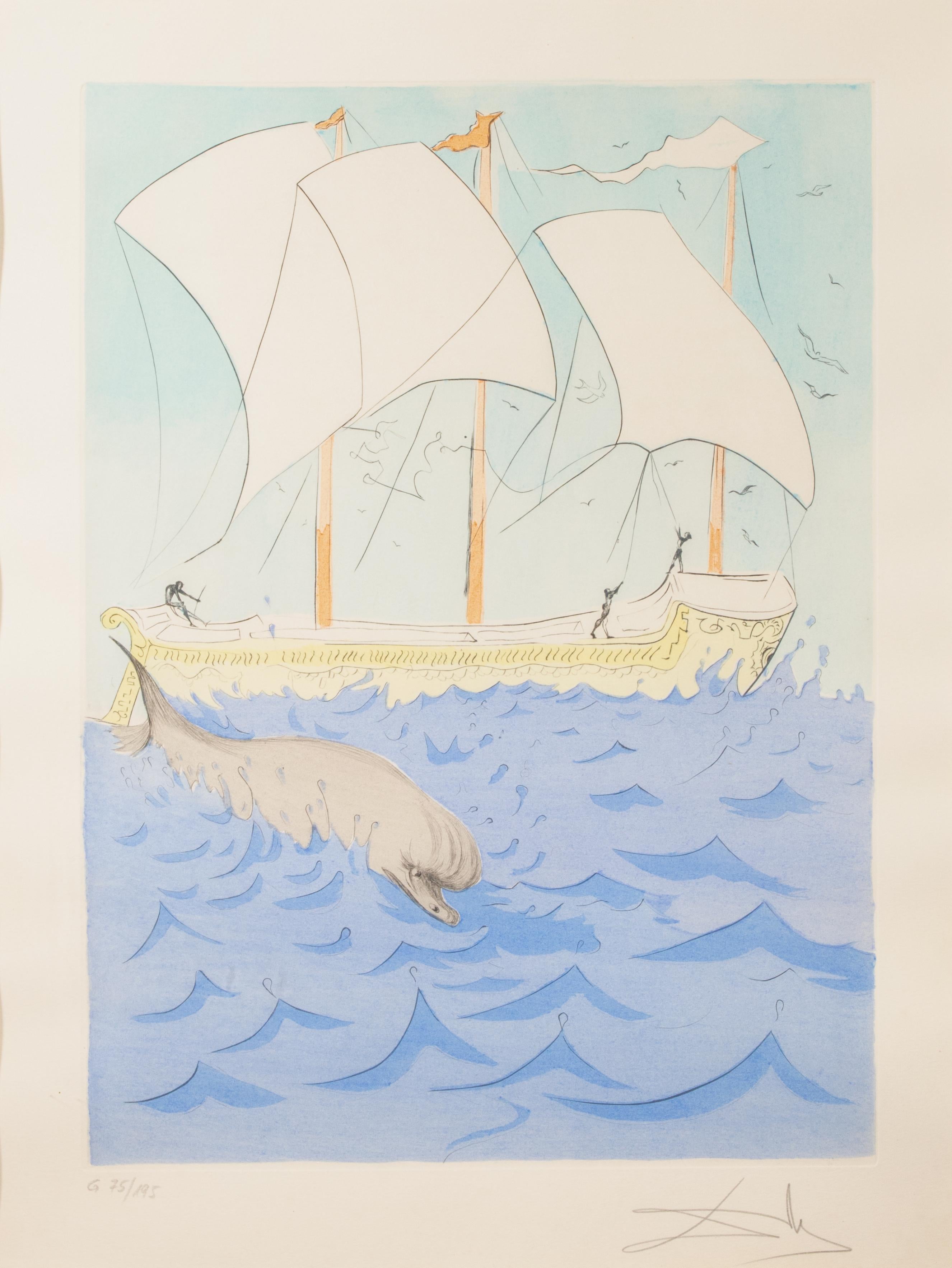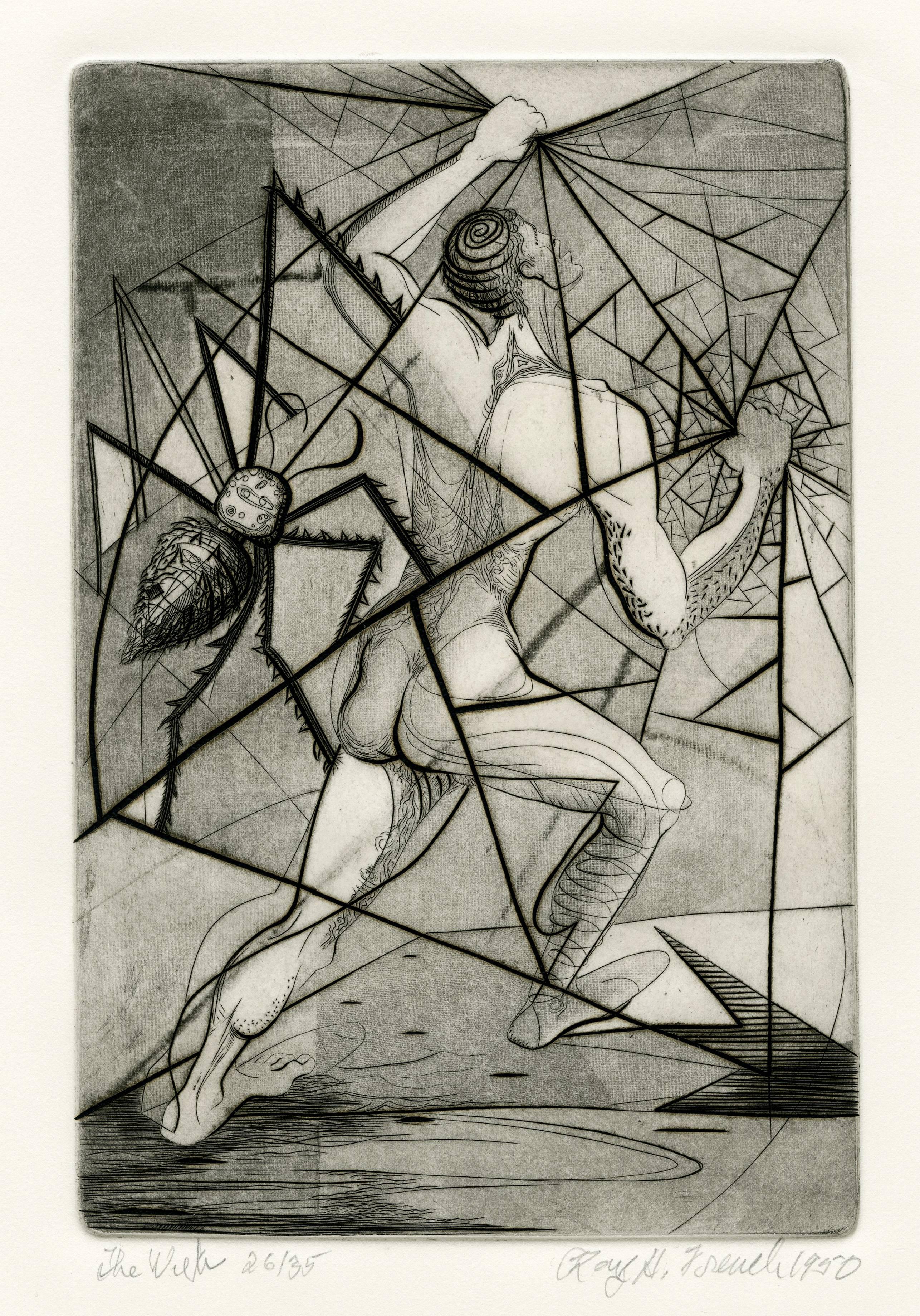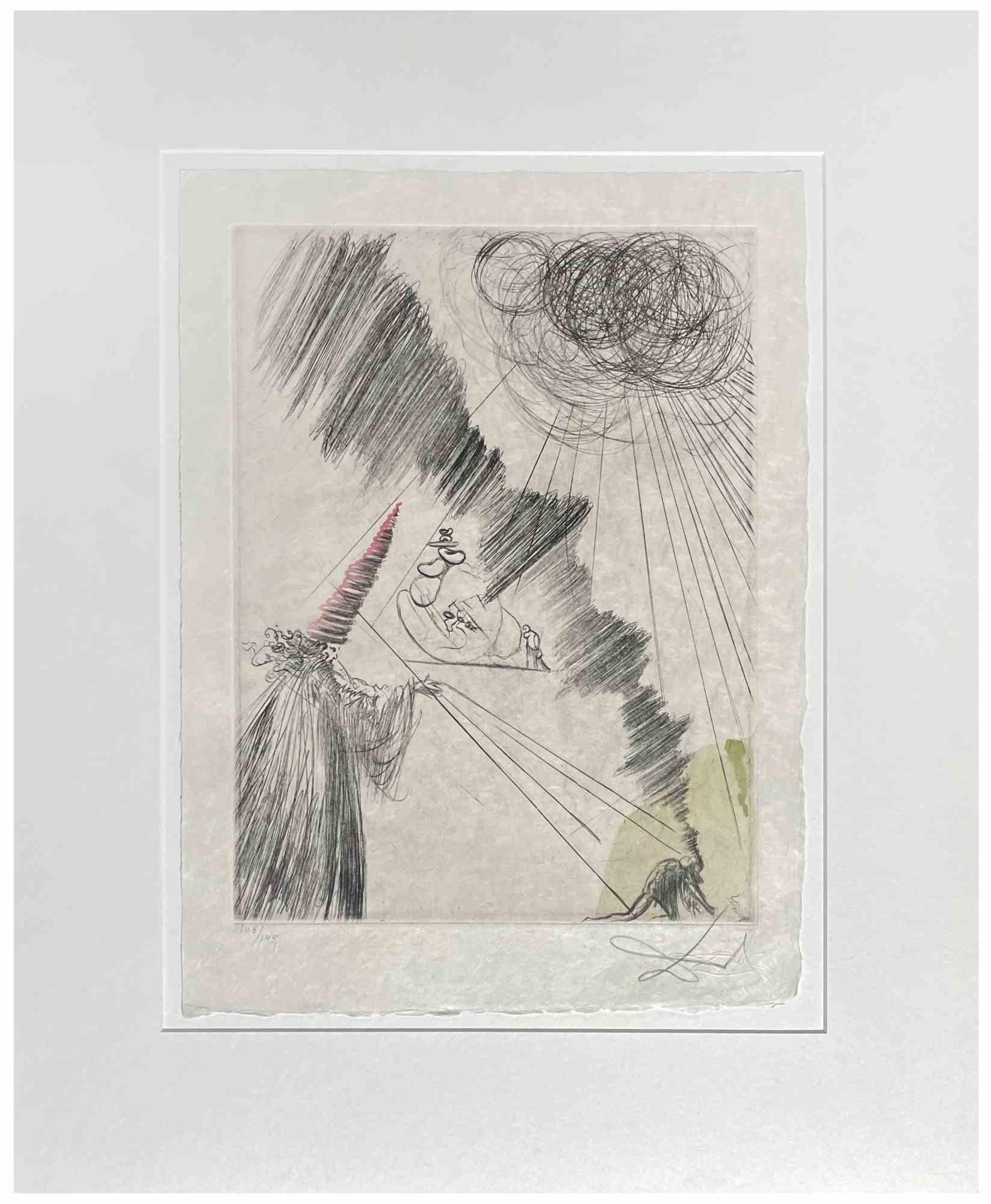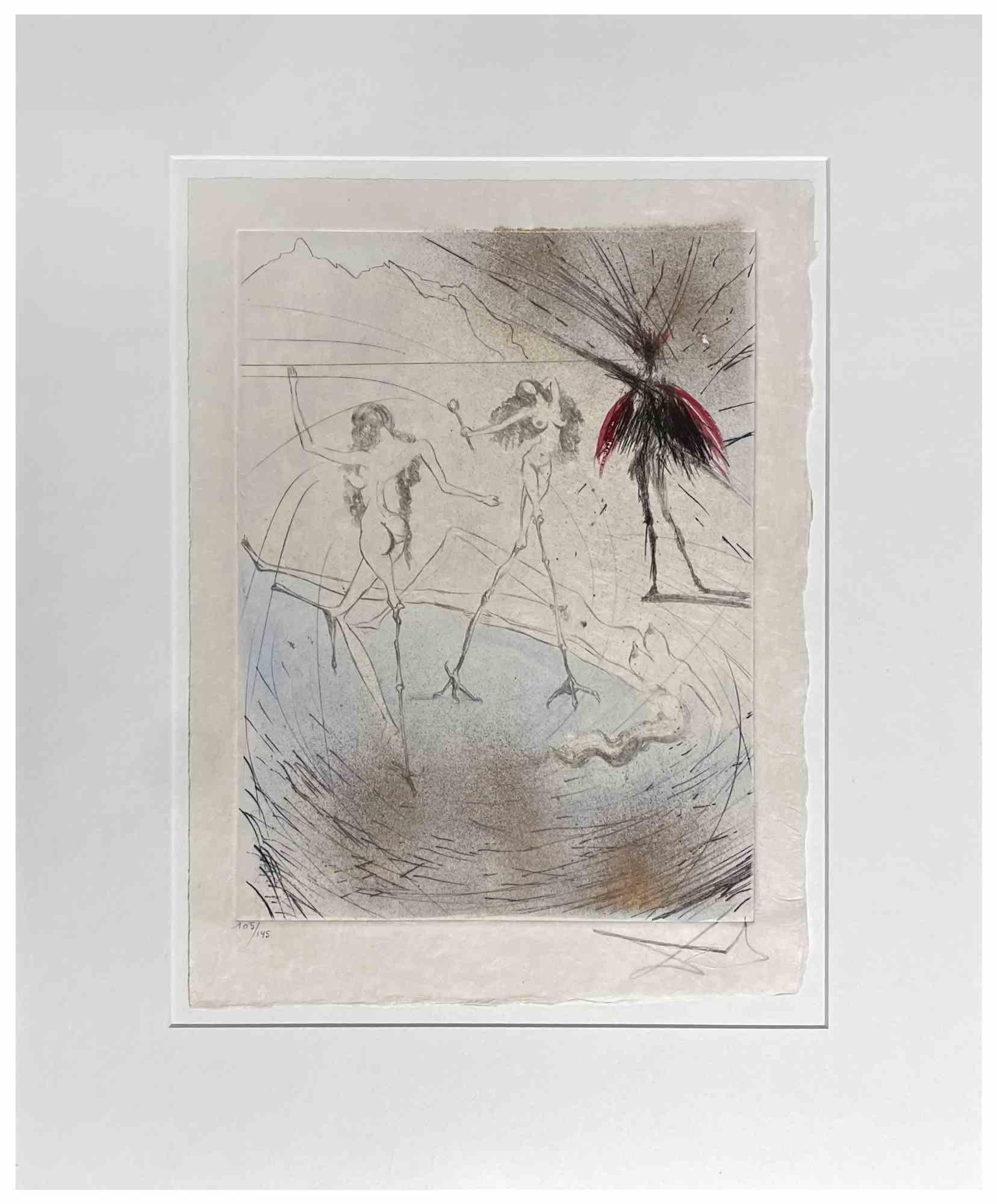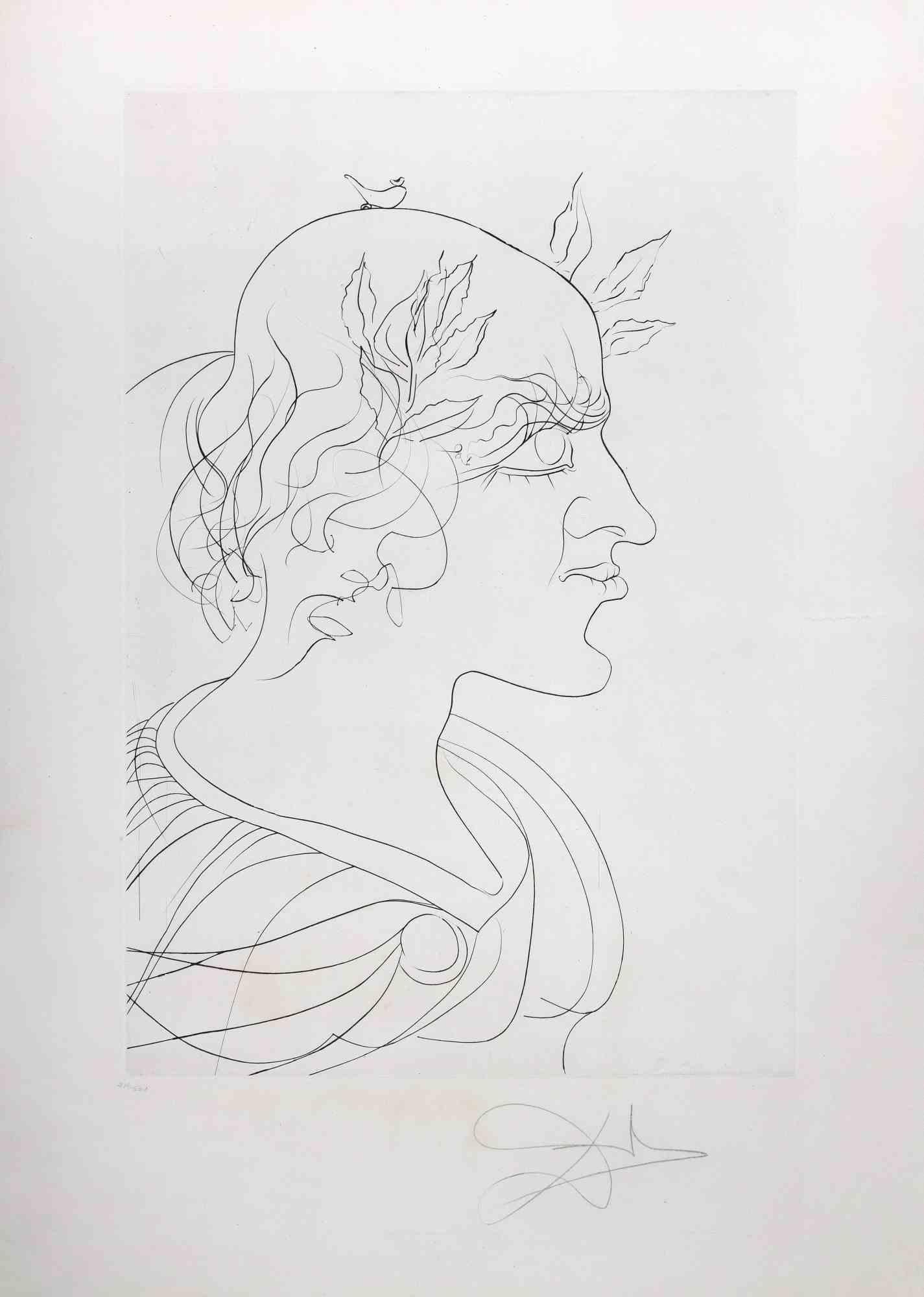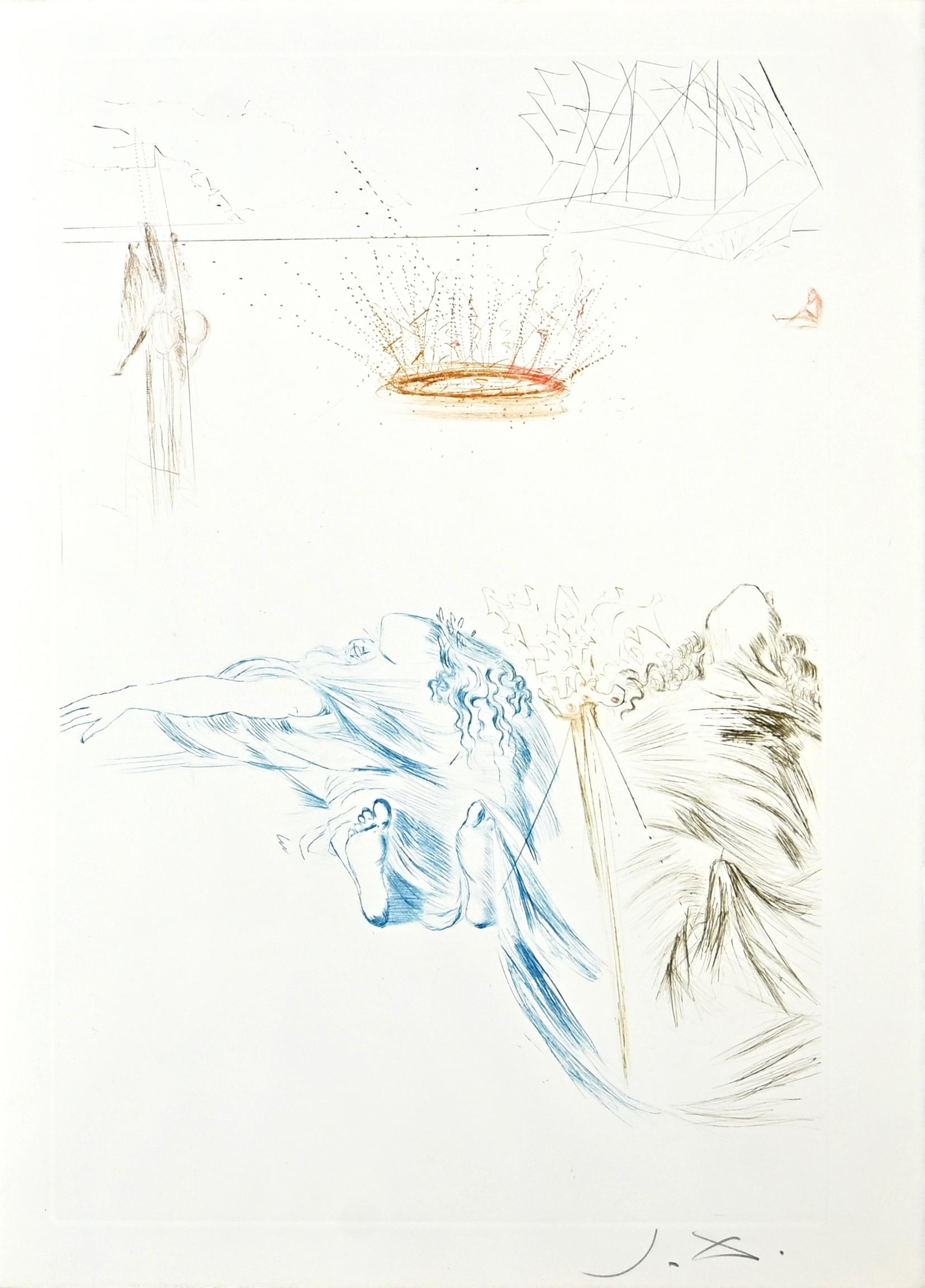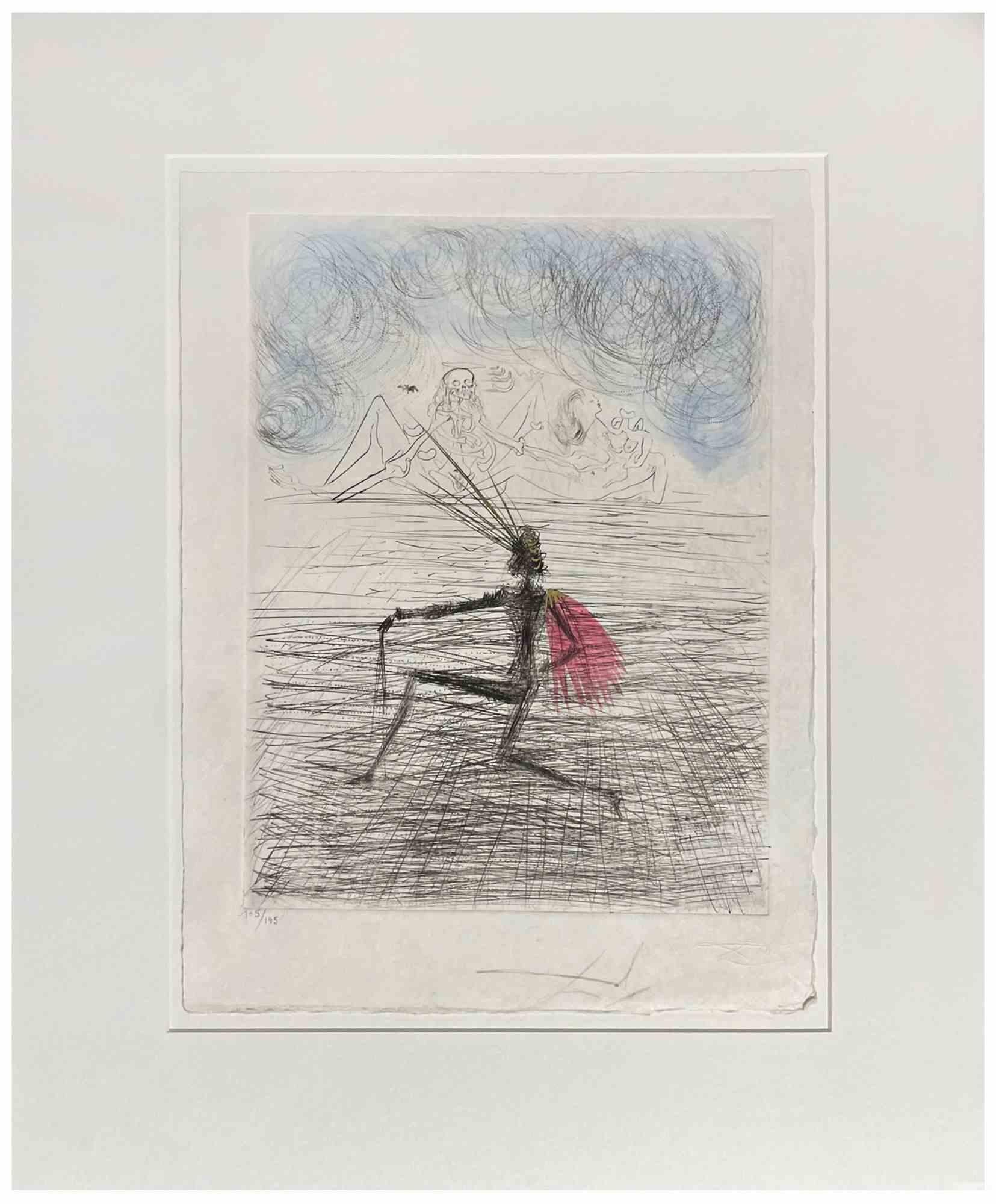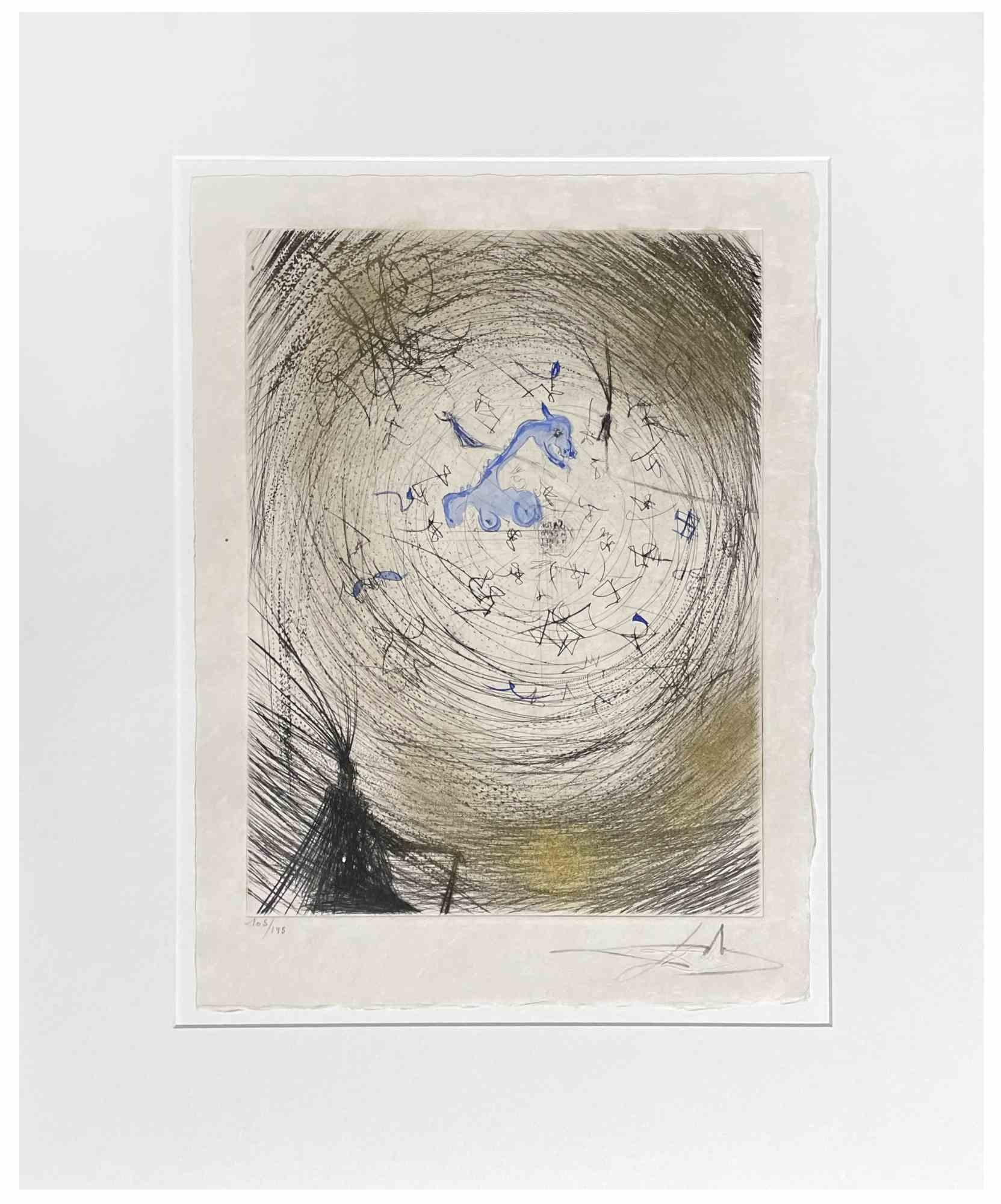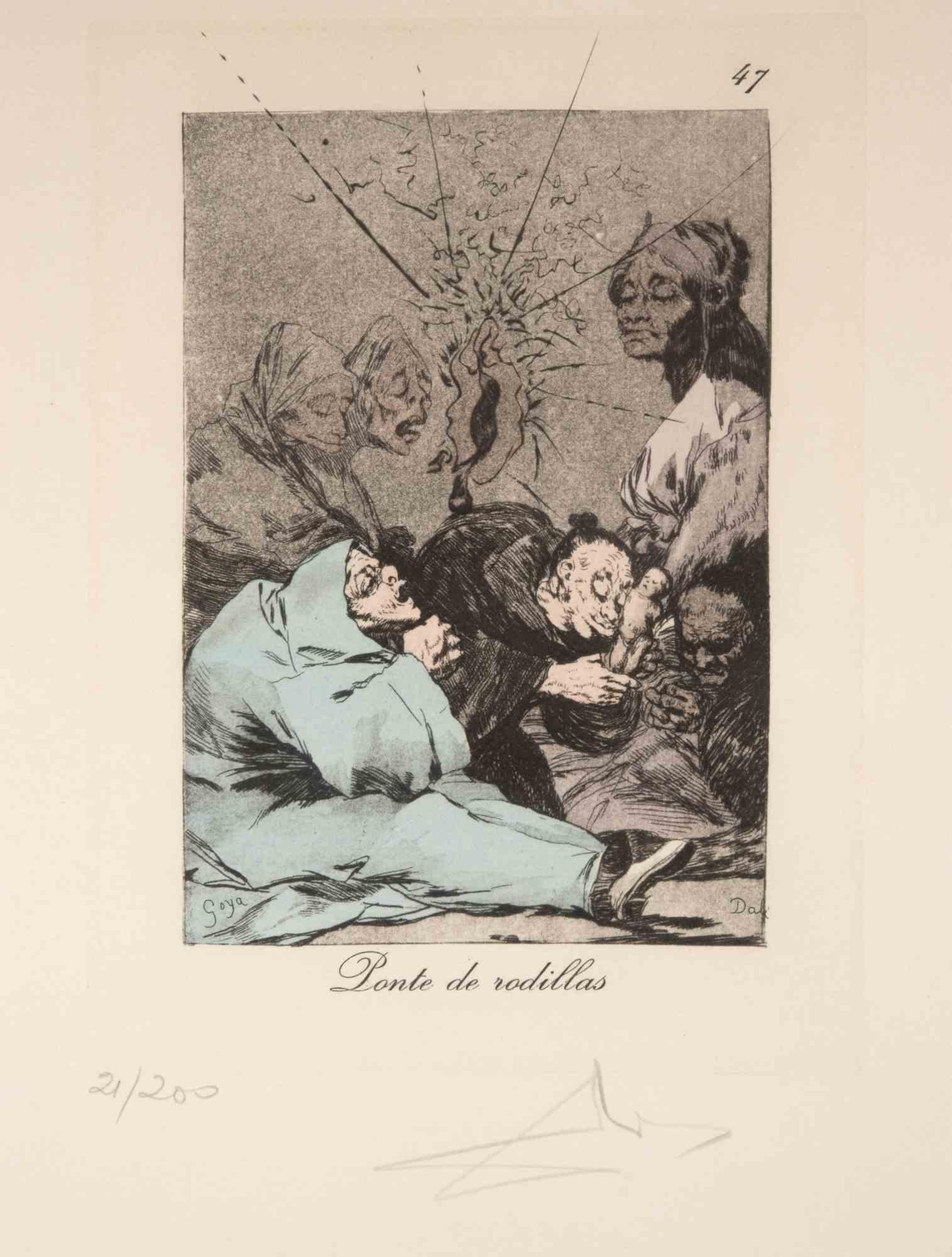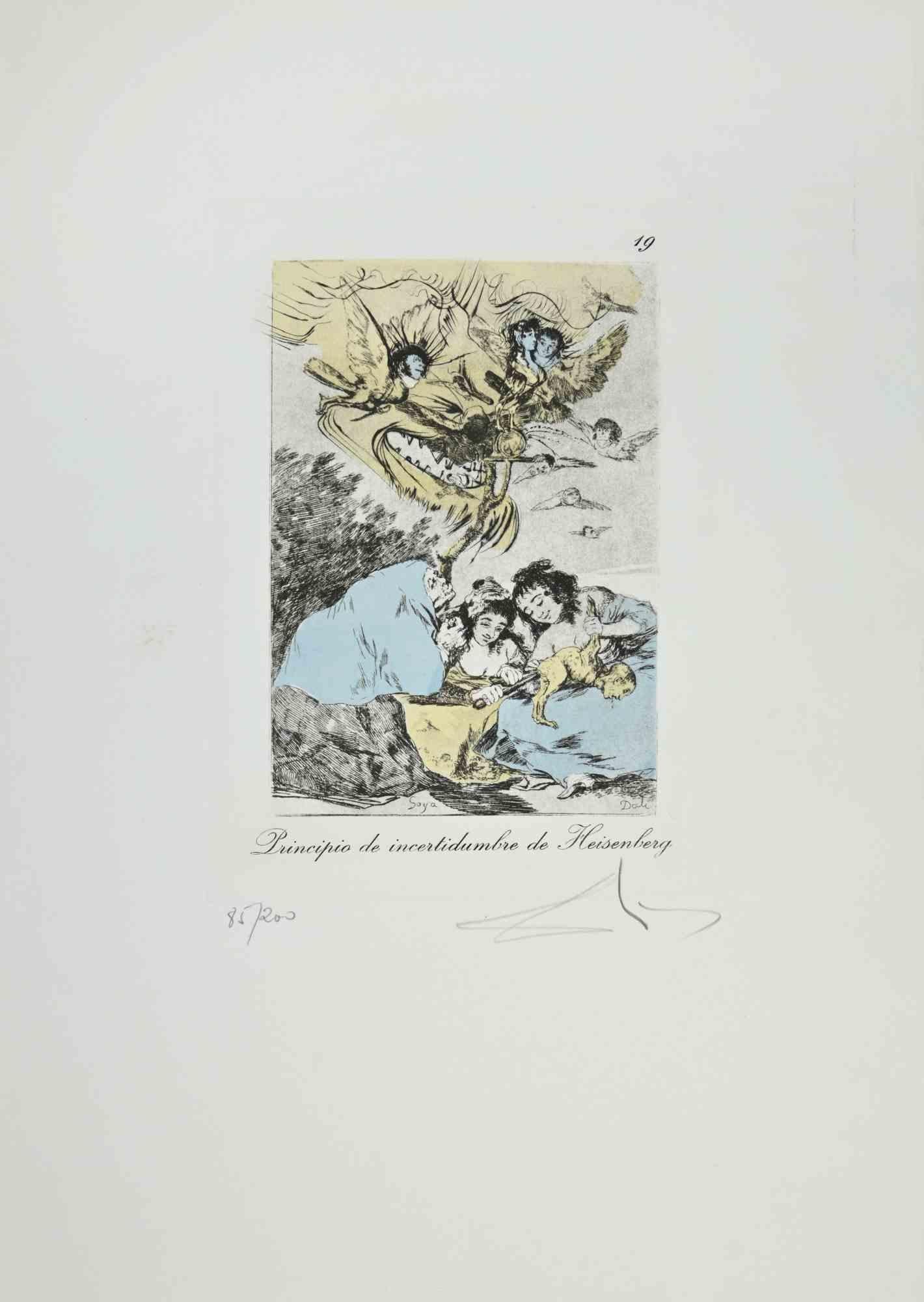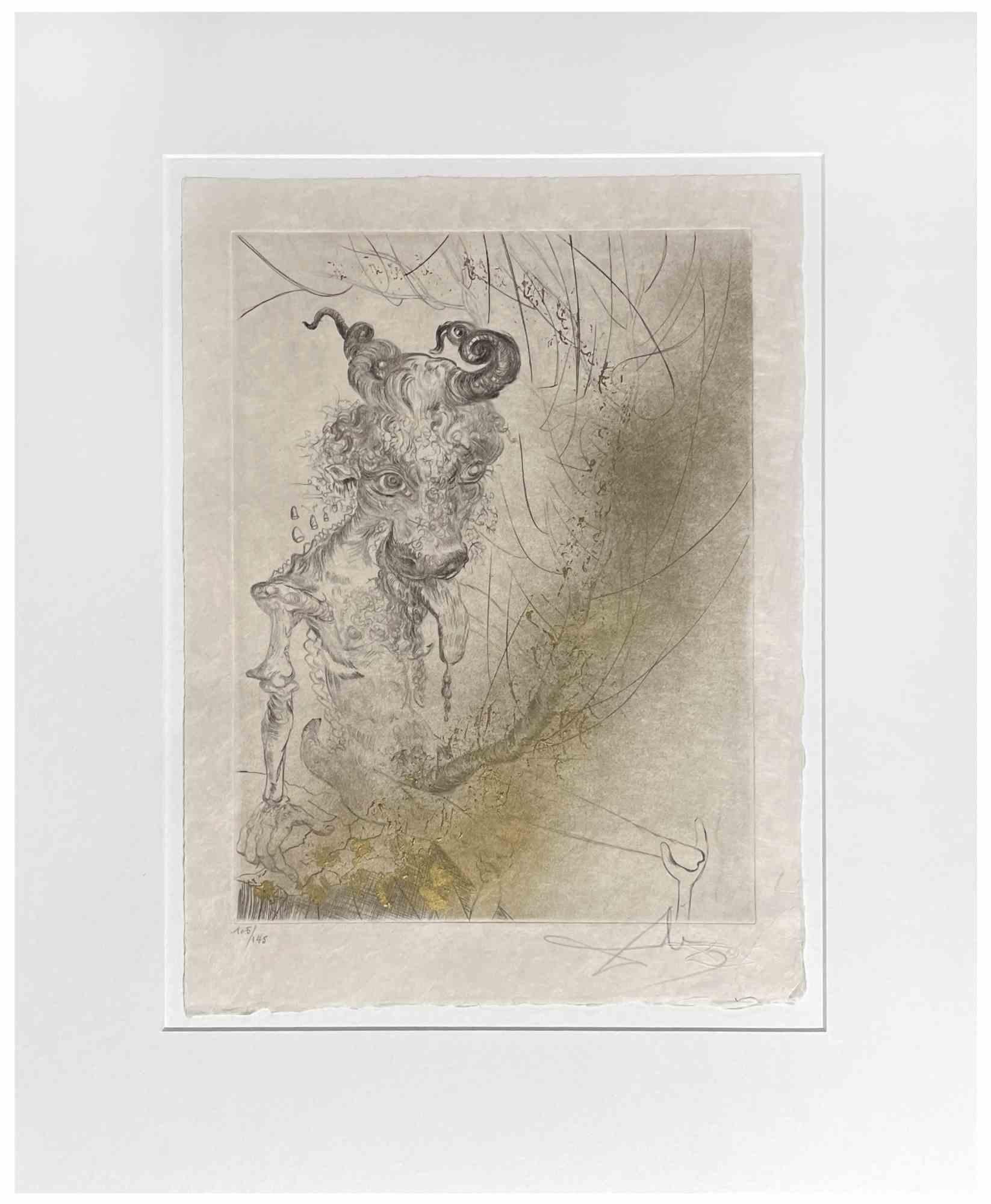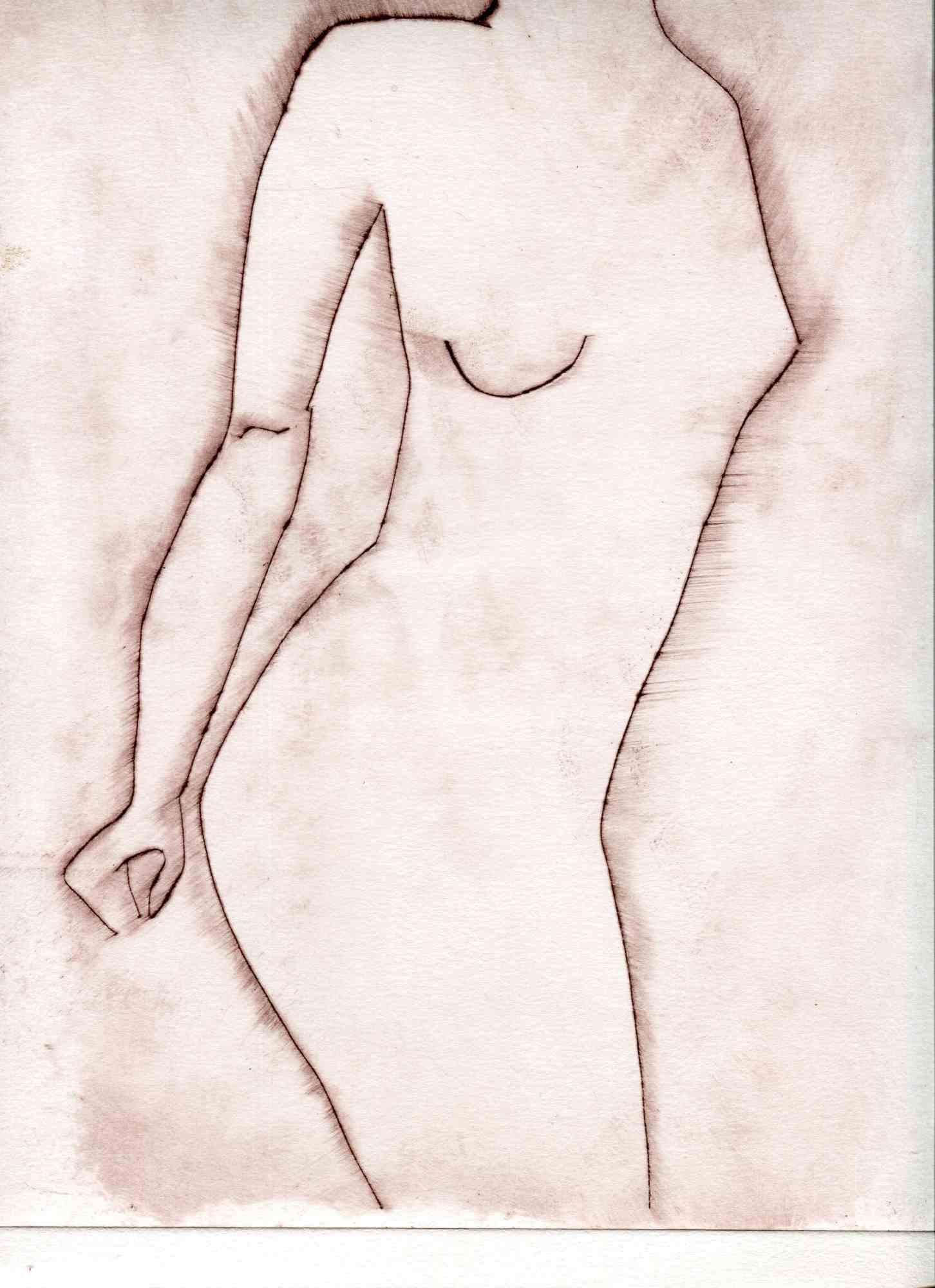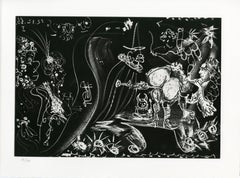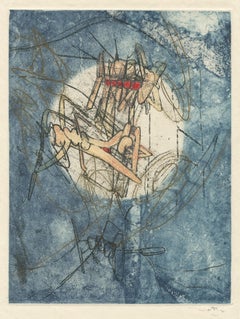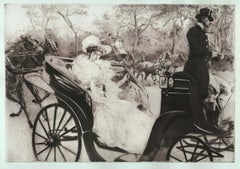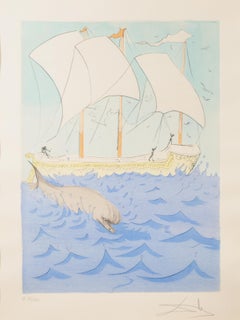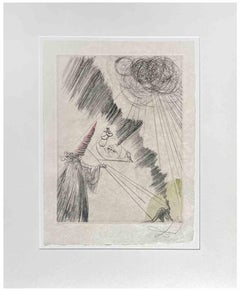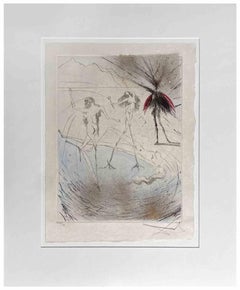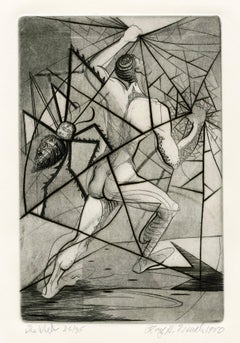
The Web
View Similar Items
Want more images or videos?
Request additional images or videos from the seller
1 of 6
Ray H. FrenchThe Web1950
1950
$950List Price
About the Item
- Creator:Ray H. French (1919-2000, American)
- Creation Year:1950
- Dimensions:Height: 10.75 in (27.31 cm)Width: 7.25 in (18.42 cm)
- Medium:
- Movement & Style:
- Period:
- Condition:
- Gallery Location:Fairlawn, OH
- Reference Number:Seller: RHF00161stDibs: LU14013160582
About the Seller
5.0
Recognized Seller
These prestigious sellers are industry leaders and represent the highest echelon for item quality and design.
Gold Seller
Premium sellers maintaining a 4.3+ rating and 24-hour response times
Established in 1978
1stDibs seller since 2013
798 sales on 1stDibs
Associations
International Fine Print Dealers Association
Authenticity Guarantee
In the unlikely event there’s an issue with an item’s authenticity, contact us within 1 year for a full refund. DetailsMoney-Back Guarantee
If your item is not as described, is damaged in transit, or does not arrive, contact us within 7 days for a full refund. Details24-Hour Cancellation
You have a 24-hour grace period in which to reconsider your purchase, with no questions asked.Vetted Professional Sellers
Our world-class sellers must adhere to strict standards for service and quality, maintaining the integrity of our listings.Price-Match Guarantee
If you find that a seller listed the same item for a lower price elsewhere, we’ll match it.Trusted Global Delivery
Our best-in-class carrier network provides specialized shipping options worldwide, including custom delivery.More From This Seller
View AllThe Web
By Ray H. French
Located in Fairlawn, OH
The Web
Engraving and soft ground, 1950
Signed, titled, dated and numbered by the artist
Edition: 35 (26/35)
Printed by Master Printer, Jon Clemens, 2000
Provenance:
Estate of the ar...
Category
1950s Surrealist Figurative Prints
Materials
Engraving, Etching
Plate VI, Le Cocu Magnifique
By Pablo Picasso
Located in Fairlawn, OH
Plate VI, Le Cocu Magnifique
etching & aquatint, 1968
Unsigned as usual
From the unsigned edition of 200 impressions printed on Rives BFK paper
There is also a signed edition of 30 i...
Category
1960s Surrealist Figurative Prints
Materials
Etching, Aquatint
De trace de pas de trace de…
By Roberto Matta
Located in Fairlawn, OH
De trace de pas de trace de…
Color etching with aquatint, 1966
From: Monsour and Matta, Les Damnations, 1966 (11 plates, this one of 7 hors text images)
Edition: 85 portfolios in the...
Category
1960s Surrealist Abstract Prints
Materials
Etching, Aquatint
La Promenade
By Edgar Chahine
Located in Fairlawn, OH
La Promenade
Etching, soft-ground, aquatint & drypoint,
Signed in pencil lower left
Published by Edmund Sagot, Paris
Edition of 50 in black only, aside from the edition of 50 in co...
Category
Early 1900s Art Nouveau Figurative Prints
Materials
Drypoint, Etching, Aquatint
XXe Siecle (Red Eyes)
By Enrico Baj
Located in Fairlawn, OH
Unsigned as is usual for this publication
From: XXe Siecle, Volume 44, 1975
Published by G. di San Lazzaro for A. Maeght, Paris
Printed by Mourlot, Paris...
Category
1970s Surrealist Figurative Prints
Materials
Lithograph
Darius at 10
By Darius Steward
Located in Fairlawn, OH
Darius at 10
Drypoint, 2022
Signed, titled and numbered in pencil
Printed by Rebekah Wilhelm
Her drystamp lower right
Published by the artist
Edition 14, plus proofs
Condition: Excel...
Category
2010s American Realist Figurative Prints
Materials
Drypoint
You May Also Like
Zebulun - Etching and Drypoint 1973
By Salvador Dalí
Located in Roma, IT
Etching, drypoint and pochoir on Arches paper.
Edition of 75/195.
Hand signed and numbered.
Dimensions of frame: 76 x 61 cm.
Ref. Michler/Löpsinger 623
Prov. Private Collection,...
Category
1970s Surrealist Figurative Prints
Materials
Etching, Drypoint
Vieux Faust - Etching - 1960s
By Salvador Dalí
Located in Roma, IT
Femme au Clown (Woman with Clown) is an artwork belonging to the Series "Faust" (La Nuit de Walpurgis), and realized in 1968/69.
Etching, Drypoint, Watercolor and Roulette on Japon ...
Category
1960s Surrealist Figurative Prints
Materials
Paper, Watercolor, Drypoint, Etching
Femmes Poules (Hen Woman) - Etching - 1960s
By Salvador Dalí
Located in Roma, IT
Femmes Poules (Hen Woman) is an artwork realized in 1968/69, from the Series "Faust" (La Nuit de Walpurgis).
Etching, Drypoint, Watercolor and Roulette on Japon Paper.
Hand signed ...
Category
1960s Surrealist Figurative Prints
Materials
Etching, Paper, Watercolor, Drypoint
Trajan - Drypoint Etching attr. to Salvador Dalì - 1973
By Salvador Dalí
Located in Roma, IT
Trajan is an original contemporary artwork realized in 1973.
Black and white drypoin etching.
Hand signed on the lower margin.
Numbered on the lower left. Edition of 216/261.
Ref...
Category
1970s Surrealist Figurative Prints
Materials
Etching, Drypoint
Le Testament de Tristan - Drypoint Etching attr. to S. Dalì - 1969
By Salvador Dalí
Located in Roma, IT
Le Testament de Tristan - From "Tristan et Iseult" is a modern artwork realized in 1969
Colour-printed drypoint etching, from the series of 21 etchings of “ Tristan et Iseult”.
Han...
Category
1960s Surrealist Figurative Prints
Materials
Paper, Etching, Drypoint
Chevalier à Genou (Kneeling Knight) - Etching - 1960s
By Salvador Dalí
Located in Roma, IT
Chevalier à Genou (Kneeling Knight) is an artwork realized in 1968/69, from the Series "Faust" (La Nuit de Walpurgis).
Etching, Drypoint, Watercolor a...
Category
1960s Surrealist Figurative Prints
Materials
Paper, Watercolor, Drypoint, Etching
Recently Viewed
View AllMore Ways To Browse
Phallic Art
Pretty Woman Dress
Utagawa Kuniyoshi
Vintage French Bikes
Vintage Israeli Travel Posters
Vintage Prayer Book
Walker Art Center Poster
Air Canada Poster
Andy Warhol Coa
Atomic Bomb
Atomic Bombs Used
Chinese Wall Paper Screen
Contemporary High Relief Wall Sculpture
Felix Vallotton
Femme Nue
Goupil Prints
Le Chapeau
Leonard Baskin Woodcut
